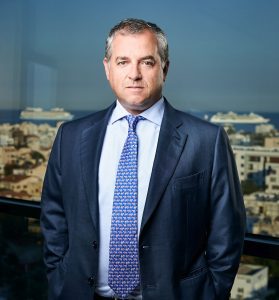Sustainability Report
The issuance of our 2024 ESG report coincides with the approval of the Global Fuel Standard (GFS) by the MEPC 83, the Marine Environment Protection Committee of the International Maritime Organization (IMO), which landmarks a decisive shift of global environmental legislation towards the decarbonization route. The GFS provides for penalties on fuels with carbon intensity greater than predefined limits, promoting the use of alternative green fuels from 2028 onwards. This follows the FuelEU legislation, which has been implemented since January 1st, 2025, imposing penalties to voyages from, within and out of European Union on top of EU Emission Trading Scheme.
Despite uncertainties and speed of implementation, it seems that companies at the forefront of technological developments, investing in modern energy efficient fleet, upgrading the energy efficiency of existing vessels and expanding the use of alternative green fuels will have operational and commercial advantage over the existing fleet, which is gradually aging.
Further to the above, we strongly believe on the importance of integrating company operations with the transparency requested by our stakeholders in relation to our company’s governance and the need of alignment with the expectations of our investors and the local societies where we operate.
Being proud on the fact that our company does not have ”E” and “D” vessels for 2024, based on greenhouse gas (GHG) IMO classification, on our extended fleet renewal program, on our solid governance framework enhanced by the voluntary adoption of an Integrated Management System based on DryBMS Standards and our responses on Society needs including amongst else scholarships, community based programs and search and rescue boat donation, I present to you our 2024 ESG report detailing our consistent efforts within the ESG framework.
Polys V. Hajioannou

- Web Design & Development by Generation Y

